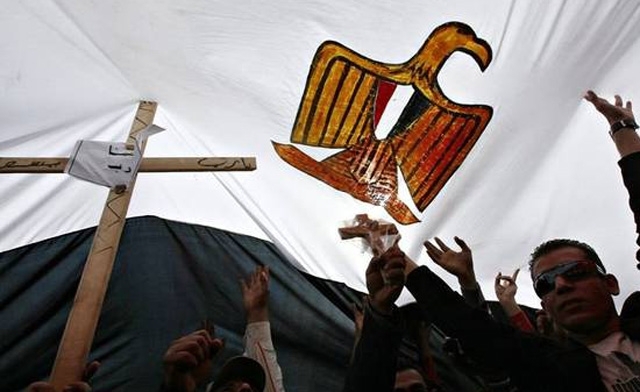With the expansion of religious radicalism, the Egyptian state has increasingly articulated itself as a sovereign power that can mitigate extremist proliferation, even at the cost of human rights. Religious discourse was one of the first issues addressed by President Abdel Fattah Al-Sisi when he assumed power in June 2014.
And yet, as the state attempts to usher in a new era of jurisprudence – whether one thinks that is a derivative of the ideals of the 25 January Revolution or the 30 June uprisings – it has increasingly yoked itself to religious institutions to ensure its legitimacy among a populist base. These institutions have their own historical legal precedents and the result is a mutually reinforcing state-religion legal system. As such, reform in both spheres continues to be obstructed, despite legal rhetoric that promises equality.
Amr Abdel Rahman, head of the Civil Liberties’ Unit at the Egyptian Initiative for Personal Rights (EIPR), has not ruled out Al-Sisi’s “good intentions, or sincere wish for reform”, but argues that the political sphere has been compromised.
“Politically, the president must protect his legitimacy, which would be jeopardised in the case of his loss of the support of the state’s religious institutions. It is for the same reason that secular political parties preferred to ignore the issue,” Abdel Rahman said.
For Abdel Rahman, reform must move beyond calls for the renewal of religious discourse only. “This country is in desperate need of religious reform that actually tackles changing misconceptions, such as countering religious discrimination. There needs to be research efforts into providing new interpretations of religious texts,” Abdel Rahman explained, adding that all of that exists, but only “on paper”.
In fact, Article 53 of the Constitution stipulates that: “All citizens are equal before the Law. They are equal in rights, freedoms and general duties, without discrimination based on religion, belief, sex, origin, race, colour, language, disability, social class, political or geographic affiliation or any other reason. Discrimination and incitement of hatred is a crime punished by law. The state shall take necessary measures for eliminating all forms of discrimination, and the law shall regulate creating an independent commission for this purpose [sic].”
Article 64 of the constitution guarantees that “establishing worship places for the followers of Abrahamic religions is a right regulated by law”.
And yet, the reality of the situation does not accord with the stipulations of the 2014 constitution. Perhaps, nowhere is this clearer than among Egyptian’s Coptic Christian population.
Egyptian Copts face constant intransigence in securing building permits. According to Abdel Rahman, building a mosque, or turning any place into a small prayer room – known as “zawya” – has a low bureaucratic threshold for approval.
“All you need to do is go to the governorate to obtain a construction licence. If you have a mosque in your building, you are also immune from penalties in cases of licence infringements. Would anyone dare cut off water or electricity from a mosque?” Abdel Rahman stated.
Church construction is regulated by the 19th century Hayamony decree. The most notorious statute is the “Hamayony Khat” issued in 1856, which makes all church construction attendant on approval by presidential decree. This can at points become farcical. In 1991, Egyptian newspapers published a presidential decree that allowed the mending of toilets in two churches, according to the research organisation Africa Watch in its 1993 publication entitled “Sudan: The Copts, Passive Survivors Under Threat”.
This is not the only legal restriction imposed by the state. Construction regulations mandate a minimum Coptic population density in the geographical area of the proposed church, as well as a distance of no fewer than 500 metres to be maintained between churches and mosques in the area. A construction licence request can be rejected if there is another church nearby.
In article 235, the constitution called for reform of the issuance of building permits for churches. Accordingly, the parliament has drafted the unified houses of worship law, which relaxes the restraints, yet maintains the regulation on church-mosque proximity.
For Abdel Raham, religious discriminated is not only contained within that sphere. “We will never witness religious reform without respecting personal freedom of beliefs, restoring a full civil state and ending the sovereignty of the religious institutions over legislations,” Abdel Rahman concluded.

